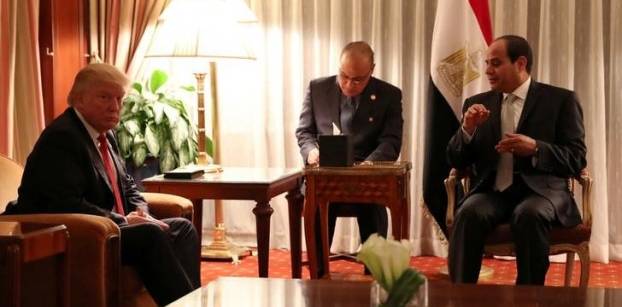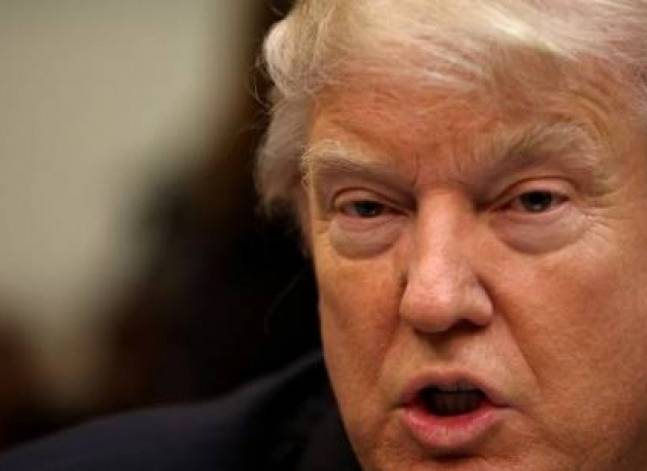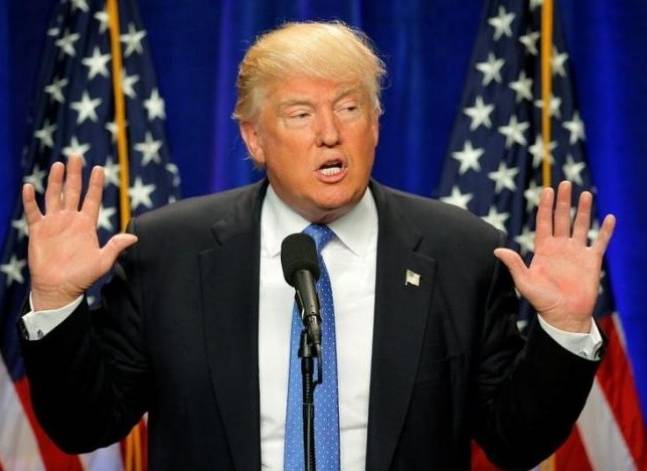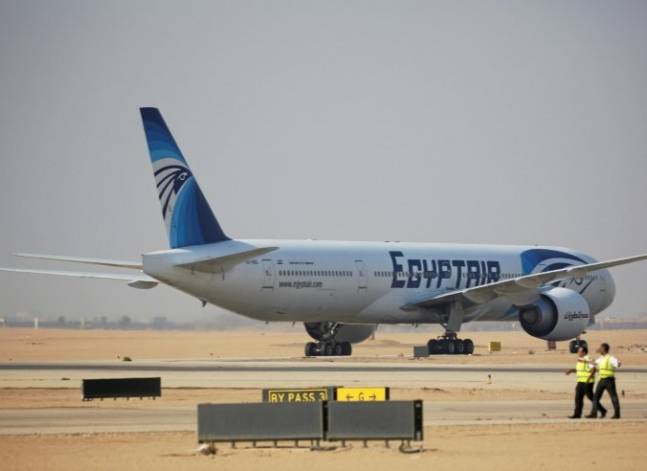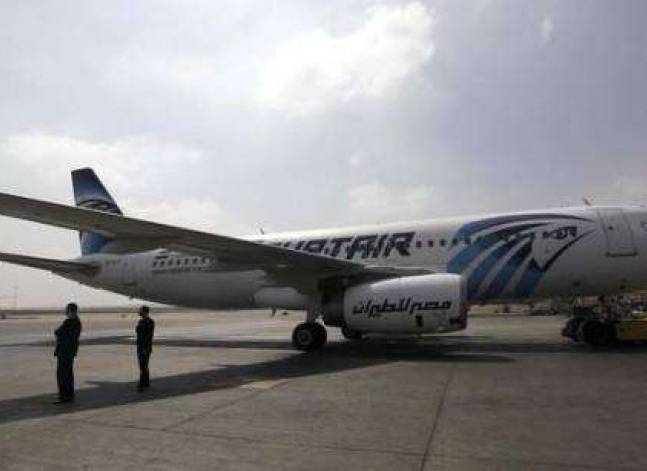Latest NEWS
- Aswat Masriya, the last word
- Roundup of Egypt's press headlines on March 15, 2017
- Roundup of Egypt's press headlines on March 14, 2017
- Former Egyptian President Hosni Mubarak to be released: lawyer
- Roundup of Egypt's press headlines on March 13, 2017
- Egypt's capital set to grow by half a million in 2017
- Egypt's wheat reserves to double with start of harvest -supply min
- Roundup of Egypt's press headlines on March 12, 2017
Trump presidency heralds new era of closer ties with Egypt
Republican Presidential nominee Donald Trump holds a bi-lateral meeting with Egyptian President Abdel Fattah el-Sisi in Manhattan, New York, U.S., September 19, 2016. REUTERS/Carlo Allegri
CAIRO/WASHINGTON (REUTERS) - Friendly phone calls, an invite to the White House, a focus on Islamic militancy and what Donald Trump called "chemistry" have set the tone for a new era of warmer U.S.-Egyptian ties that could herald more military and political support for Cairo.
The mutual admiration dates back to a U.N. meeting in September, when then-presidential candidate Trump found common ground with President Abdel Fattah al-Sisi's hard line on extremism. Trump described the ex-general, who rights groups criticize as authoritarian and repressive, as a "fantastic guy".
Sisi, the first foreign leader to congratulate Trump on his election victory, returned the favor last month after the newly inaugurated president barred citizens of seven Muslim-majority countries from entering the United States.
Egypt, not on the list, refrained from speaking out against the ban on behalf of Muslim countries that often look to it for leadership. That silence spoke volumes about the changing tone of its relationship with the United States.
For Trump, Sisi appeals as an uncompromising leader who came to power by overthrowing the Muslim Brotherhood and is fighting Islamic State in northern Sinai and on his border with Libya.
For Sisi, Trump appeals as a U.S. leader who unlike Barack Obama is not interested in berating an old ally on human rights.
"The rhetoric alone of this Trump administration is much more forward leaning in its support towards Sisi than Obama," said one U.S. official, who declined to be named. "I expect it to be a much closer relationship."
Egypt is one of Washington's closest Middle East allies, and U.S. military aid has long cemented its historic 1979 peace deal with Israel. Home to the Suez Canal, one of the world's busiest waterways, the stability of the Arab world's most populous state is a U.S. priority, but the strategic relationship hit a low under Obama who briefly froze aid after Sisi overthrew an elected president.
In contrast, weeks into Trump's presidency, the White House has already discussed declaring the Brotherhood a terrorist group - sure to be welcomed by Sisi, who was condemned by Obama for his crackdown on Egypt's oldest Islamist group.
Egyptian and U.S. officials say the Trump administration will likely seek to lift or ease conditions imposed under Obama on the payment of $1.3 billion in U.S. military aid a year.
Officials and analysts do not expect a major jump in the size of U.S. military aid overnight, but describe a relationship that is more aligned and mutually supportive.
"During the Obama's administration there were difficulties," said an Egyptian government official, who declined to be named.
"When the administrations have common goals it makes cooperation easier. The military is the backbone of the relationship. We have a common enemy, which is terrorism."
MILITARY SUPPORT
Obama froze aid for nearly two years after Sisi overthrew President Mohamed Mursi, an elected Brotherhood official, in mid-2013 after mass protests.
Though Sisi went on to win an election and the aid was restored in March 2015, new rules were introduced to ensure it was used for counter-terrorism and border security and Sinai.
Congress also made aid dependent on the U.S. Secretary of State certifying that Egypt was moving to govern democratically.
That experience has left a bitter taste among some in Egypt's military who saw their overthrow of the Brotherhood as part of the broader war on terrorism.
"What interests Egypt now is economic and military aid and this is what Egypt will try to benefit from in light of the closeness between Sisi and Trump," an Egyptian intelligence official said. "In return, America is seeking to benefit from Egypt as an ally in the Middle East and the fight against terrorism."
The Egyptian government official said the overall size of the aid package had barely changed in decades, but it would weigh any request for increases carefully.
What Egypt gets depends partly on Congress, where some oppose loosening restrictions due to concerns over Sisi's crackdown on dissent.
"(The administration) could ask Congress to no longer impose conditions on the funds and they could request increases in certain types of assistance," said Tim Rieser, a foreign policy aid to Senator Patrick Leahy, the Democratic vice chairman of the Senate Appropriations Committee.
"But President Trump's positive statements offer President Sisi a kind of affirmation and encouragement to continue what he is doing, which in some ways is worth more than dollars."
NEW ERA
Egypt has witnessed years of upheaval since the 2011 uprising helped to end Hosni Mubarak's 30-year rule, a change ultimately supported by the Obama administration.
When the ensuing elections saw Islamists win parliament and presidency, Obama engaged them in an effort to encourage democratization in the aftermath of the Arab Spring uprisings.
But Egypt banned the Muslim Brotherhood as a terrorist organization shortly after Sisi seized power. His security forces killed hundreds of Mursi supporters and thousands of activists have been jailed, prompting criticism from the United States and the aid suspension. By contrast, Trump has backed Egypt's approach.
"The (Trump) administration has signaled repeatedly that it sees the Muslim Brotherhood as virtually indistinguishable from groups like al Qaeda or even Islamic State," said Eric Trager, a fellow at The Washington Institute for Near East Policy.
"This is something Cairo is very excited about and Arab partners favor as well."
On the street, Trump's victory was met with delight by Sisi supporters, who saw in Hillary Clinton an extension of Obama.
The early invitation to the White House is seen by Egyptian officials as a sign they will again be heard.
But while Egyptian officials like Trump's more aggressive approach to Islamic State they say they have yet to see detailed policies. "The warmth of the rhetoric is definitely something that's different, that makes the Egyptians feel very comfortable," said H.A. Hellyer senior non-resident fellow at the Atlantic Council in Washington. "But nobody likes an unpredictable, erratic, variable in the mix and Trump is a very erratic variable."
(Additional reporting by Amina Ismail and Ahmed Mohammed Hassan in Cairo, editing by Peter Millership)

